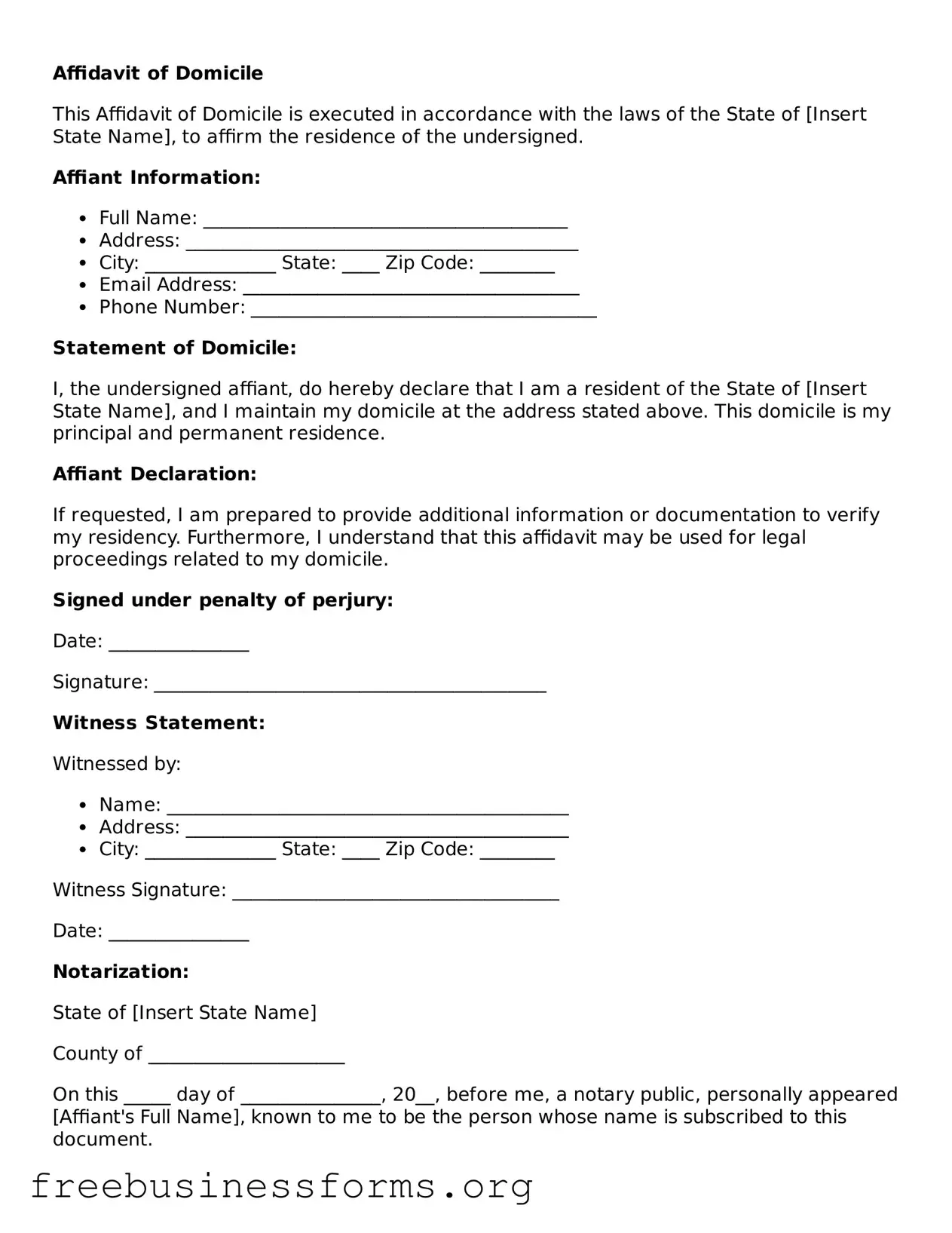Official Affidavit of Domicile Form
The Affidavit of Domicile is a legal document used to establish an individual's permanent residence, often required for the transfer of assets after someone's passing. This form serves as a declaration, confirming where a person lived at the time of their death. Understanding its purpose and implications can simplify the estate settlement process for loved ones left behind.
Open Form Here

Official Affidavit of Domicile Form
Open Form Here

Open Form Here
or
↓ PDF File
Quickly complete this form online
Complete your Affidavit of Domicile online quickly — edit, save, download.